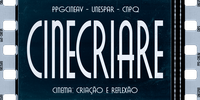RESEARCH GROUPS

-
CINECREARE - Filming: creation and reflection
Leaders: Profa. Dra. Cristiane Wosniak e Prof. Dr. Eduardo Tulio Baggio
Year of creation: 2014
The Research Group (RG) Cinecreare aims to develop research on Films and Video Arts as fields of Art in dialogue with other areas of knowledge. Its research focus is directed towards cinematographic and videographic works, as well as artists and their contexts, always paying attention to creative acts and processes of creation. Such acts and creative processes are taken in their aesthetic, social, teaching/learning, technological and economic correlations, emphasizing, particularly, the methodological approach of Filmmakers Theory and Process Criticism. Cinecreare is based on a single research line, named "Critical Analysis of the Creation Processes in Film and Video Arts", in consonance with the focus of the group and with PPG-CINEAV’s Research Line #2, "Creation Processes in Film and Video Arts" of PPG-CINEAV. Thus, the Research Group, as well as the (unique) research line and the research projects that are linked, consider as objects of investigation both the audiovisualities (Film and Video Arts) and the manifestations of ideas, theories, and concepts arising from them.

EIKOS- Image and Aesthetic Experience (CNPq)
Leaders: Prof. Rafael Tassi Teixeira e Prof. Pedro Faissol
Year of creation: 2020
Formed in 2020, this Research Group aims the production of studies on the various theoretical, critical, and sensitive manifestations related to the phenomenon of the aesthetic experience of the image in different historical periods, contexts of production and reception, and in the various phenomenological apprehensions related to the thought of and from images. Such studies include multiple artistic forms, with emphasis on film and video arts, but also contemplating photography, visual arts, performing arts, literature, and all the artistic languages that produce aesthetic experiences through images.The Group is divided into two Research Lines: Artemis (Art, Memory and Identities), whose main objective is to study the relations between art, memory, and identities, as well as the sensitive strategies of memory transmission written and rewritten in artistic works and in exhibition/linkage spaces (concrete objects: cinemas, installations, museums, etc. ); and Imago (Images and Imaginaries), with the purpose of studying the "thoughtfulness" of the image and its subject, the relations between different visual landscapes and their affective, historical, and pragmatic unfoldings, besides the configurations of the aesthetic experience substantiated in the various forms of fruition, apprehension, production, reception, suspension, delimitation, negotiation, and configuration of the images. (In this line, the study of film pieces and audiovisual productions stands out as the main research objects to be investigated).
Researchers from Artemis Line, PPG-CINEAV: Prof. Dr. Rafael Tassi Teixeira, Prof. Dr. Sandra Fischer, and Prof. Dr. Maria Cristina Mendes.
Researchers from Imago line, PPG-CINEAV: Prof. Dr. Beatriz Avila Vasconcelos, Prof. Dr. Claudia Priori, Prof. Dr. Eduardo Tulio Baggio.

NAVIS - Visual Arts Center
Leader: Profa. Rosane Kaminski
Created in 2010 by professors Artur Freitas and Rosane Kaminski and certified by the State University of Paraná, the Visual Arts Center (NAVIS) is an inter-institutional research group focused on studies in the field of visual arts and their relations with other languages, among which are film and video. The group's emphasis is the theoretical and historical reflection on the production, circulation, and reception processes of modern and contemporary visuality.The group is formed by two research lines, the first one being "History of visual arts", which is characterized by studies focused on the intersection between the visual arts historicity and the main cultural vectors of a given society, group, or context.To this end, the tensions and dialogue between the fields of modern and contemporary arts are privileged with the main trends of art historiography.The second line is "Arts and Fiction", which focuses on the theoretical and historiographical study of the relations between visual culture and fictionality systems. In these terms, this line starts from a comprehensive notion of "arts", which by means of the encounter between image and fiction involves the several fictional languages of imagetic nature, with several studies involving film and video arts.

GPACS : Research group on art, culture and subjectivity
Leaders: Profa. Dra. Beatriz Avila Vasconcelos e Profa. Dra. Maria Cristina Mendes
Year of creation: 2021
GPACS - Research Group on Art, Culture and Subjectivity is a Group linked to Line 1 “Theories and Discourses in Film and Video Arts” of the Post-Graduate Program in Film and Video Arts (PPG-CINEAV) of the State University of Paraná (Unespar).The group’s objectives are:
- to articulate film and video art with other artistic productions, seeking through this dialogue to delineate the role of arts in the constitution of individuals, their identities and forms of existence and resistance, interaction and sensibility, focusing on ethical, social, political, cultural, environmental, and humanitarian issues which are involved;
- to stimulate investigations in a decolonial perspective, looking at artistic productions and subjectivities that are rarely or not incorporated at all to the hegemonic discourses in the arts, as well as to critically address the codes, genres, practices, epistemologies, and Eurocentric canons to historically understand them in their configurations of power;
- to produce investigations that shed light on the sensitive forms and the processes of subjectivation, and aesthetic perception, and experience in artistic creation and reception;
- to develop research that contributes to historical and social justice, aligned with the Human Rights purposes and the Culture of Peace, thus favoring epistemologies that value the sensitive, the dimensions of subjectivity, the understanding of the individuals and cultures diversity, and the respect for the dignity of the human person and the other beings.
